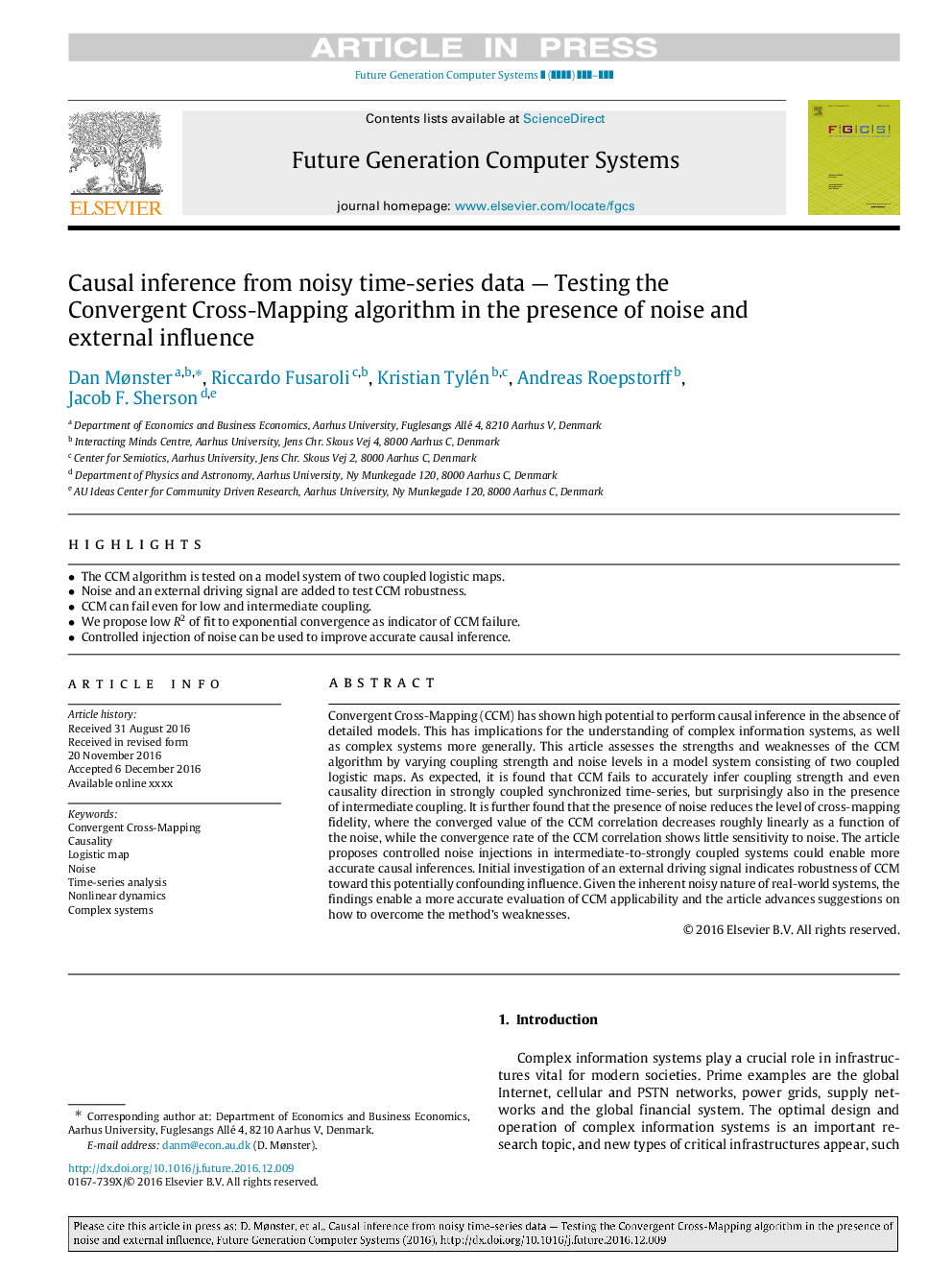| Article ID | Journal | Published Year | Pages | File Type |
|---|---|---|---|---|
| 4950135 | Future Generation Computer Systems | 2017 | 11 Pages |
Abstract
Convergent Cross-Mapping (CCM) has shown high potential to perform causal inference in the absence of detailed models. This has implications for the understanding of complex information systems, as well as complex systems more generally. This article assesses the strengths and weaknesses of the CCM algorithm by varying coupling strength and noise levels in a model system consisting of two coupled logistic maps. As expected, it is found that CCM fails to accurately infer coupling strength and even causality direction in strongly coupled synchronized time-series, but surprisingly also in the presence of intermediate coupling. It is further found that the presence of noise reduces the level of cross-mapping fidelity, where the converged value of the CCM correlation decreases roughly linearly as a function of the noise, while the convergence rate of the CCM correlation shows little sensitivity to noise. The article proposes controlled noise injections in intermediate-to-strongly coupled systems could enable more accurate causal inferences. Initial investigation of an external driving signal indicates robustness of CCM toward this potentially confounding influence. Given the inherent noisy nature of real-world systems, the findings enable a more accurate evaluation of CCM applicability and the article advances suggestions on how to overcome the method's weaknesses.
Related Topics
Physical Sciences and Engineering
Computer Science
Computational Theory and Mathematics
Authors
Dan Mønster, Riccardo Fusaroli, Kristian Tylén, Andreas Roepstorff, Jacob F. Sherson,
